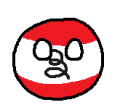Austrian School, also known as Austrolibertarianism shortened to Austrobert, is libertarian, economically laissez-faire, and culturally variable but usually leaning right. He is rather simply Error creating thumbnail: Unable to save thumbnail to destination Libertarianism based on the Error creating thumbnail: Unable to save thumbnail to destination Austrian School Economics. It is highly influenced by Menger's Marginal Utility Theory, Mises' Praxeology and Socialist Economic Calculation Problem, the Austrian Business Cycle, etc...
While as economic theory, the Austrian School of Economics neither supports nor opposes regulations (merely stating what their effects are), as a political ideology which encompasses economic thought, it opposes market intervention from the state, from either a "value-free approach" (taken by Mises) or an ethical-juridical approach (taken by Rothbard, who criticized the former), believing that markets follow tendencies of auto-regulation, always moving towards equilibrium, though never fully reaching it as the point of equilibrium moves.
Many followers of it especially stress the damage done by state influence in monetary policies, believing this (manipulation of money supply and interest rates) to be the cause of many economic cycles.
It believes that economics studies can't be done by empirical methods due to it being a social science and not a hard science, making precise economic measurements completely impossible and thus economics theory can only be studied a priori deducted from the "action axiom".
This, however, does not mean that it completely rejects Error creating thumbnail: Unable to save thumbnail to destination empiricism on the area of economics. It makes a distinction between economic theory and economic history, believing that it is perfectly possible to accurately back claims about economic history with empirical evidence, but rather that these claims are useless in order to prove or disprove any claim in the realm of economic theory.
History
Tenets
The Austrian-American economist Fritz Machlup has distinguished six general principles which distinguish the methodology of the Austrian school of economics, as well as two additional principles which together with the methodological principles conform the politics of Austrolibertarianism. With the former being: methodological individualism, methodological subjectivism, tastes and preferences, opportunity costs, marginalism and time structure of production and consumption; and the latter being consumer sovereignty and political individualism.[1]
Methodological Error creating thumbnail: Unable to save thumbnail to destination Individualism
Methodological individualism is the scientific principle that social phenomena are to be explained through the actions of individuals, instead of groups, as the latter can be explained by the former. According to methodological individualists, collectives may only exert influence through the actions of their individual members, and whether or not an action is attributed to the group or to an individual depends on the interpretation of the observer.
Methodological Subjectivism
Methodological Subjectivism is the principle that economic phenomena are generally to be explained through the subjective judgements made by different economic actors, taking into account that each one seeks to maximize their utility, usually through maximizing their monetary revenue.
Tastes and Preferences
Subjective valuations of goods and services determine the demand for them so that their prices are influenced by (actual and potential) consumers.
Opportunity Cost
Opportunity cost is the cost of any activity measured in terms of the value of the next best alternative foregone (that is not chosen). It is the sacrifice related to the second best choice available to someone, or group, who has picked among several mutually exclusive choices.
Opportunity cost is a key concept in mainstream economics and has been described as expressing "the basic relationship between scarcity and choice". The notion of opportunity cost plays a crucial part in ensuring that resources are used efficiently.
Marginalism
Marginalism is an economic theory that states that the value of a determined good is the value of its subjectively least valuable use. Thus, the marginal value (of the next unit of the good in question to be acquired) decreases as most valuable uses for the good are satisfied, or the opposite happens as one's stock of a good decreases.
Consequently, in all economic designs, the values, costs, revenues, productivity and so on are determined by the significance of the last unit added to or subtracted from the total stock.
Time Structure
Decisions to save reflect "time preferences" regarding consumption in the immediate, distant, or indefinite future and investments are made in view of larger outputs (interest) expected to be obtained if more time-taking production processes are undertaken.
Consumer Sovereignty
The influence consumers have on the effective demand for goods and services and through the prices which result in free competitive markets, on the production plans of producers and investors, is not merely a hard fact but also an important objective, attainable only by complete avoidance of governmental interference with the markets and of restrictions on the freedom of sellers and buyers to follow their own judgment regarding quantities, qualities and prices of products and services.
Political Individualism
Only when individuals are given full economic freedom will it be possible to secure political and moral freedom. Restrictions on economic freedom lead, sooner or later, to an extension of the coercive activities of the state into the political domain, undermining and eventually destroying the essential individual liberties which the capitalistic societies were able to attain in the 19th century
Conclusions
Variants
Error creating thumbnail: Unable to save thumbnail to destination Distributist Libertarianism

Distributist Libertarianism (also known as Southern Distributism) is an economically center-right to right-wing, libertarian and culturally centre-right ideology, advocating for an economic system based on widely-spread property ownership and a society culturally based on Catholic social teachings. Distributist Libertarians do not believe that Error creating thumbnail: Unable to save thumbnail to destination laissez-faire Austrian school economics result in an unfair concentration of power, but rather that the vast majority of concentration of power in capitalist economic systems occurs because of state intervention in the economy (for example; Intellectual "Property", Subsidies, Inconsistent Taxation, everything Error creating thumbnail: Unable to save thumbnail to destination Keynes advocates for and such).
How to Draw
Austrian School's design is a combination of Austria's and the Gadsden flags.

- Draw a ball
- Separate the ball into 3 equal horizontal bars (a tricolor), with the top and bottom being pinkish-red, and the middle one being white
- Draw in black rattlesnake in the middle of the ball
- Add green grass below the snake
- Lower below, add some variation of the quote "DON'T TREAD ON ME", like "no step on snek"
- Alternatively, you can write "TRITT NICHT AUF MICH" or simply "NEIN" (in German, meaning "DO NOT TREAD ON ME" and "NO" respectively)
- Draw the eyes
You're done!
| Color Name | HEX | RGB | |
|---|---|---|---|
| Pinkish Red | #EE2436 | 238, 36, 54 | |
| White | #FFFFFF | 255, 255, 255 | |
| Black | #141414 | 20, 20, 20 | |
| Grass Green | #194619 | 25, 70, 25 | |
Relationships
Austrobert's behavior is based on one of the stereotype of Mises, calling everyone a socialist (Even Error creating thumbnail: Unable to save thumbnail to destination Friedmanite-style Libertarians or Error creating thumbnail: Unable to save thumbnail to destination even Hayekians.)
True Capitalists
- Error creating thumbnail: Unable to save thumbnail to destination Classical Liberalism - My greatest influence and the best granddad I could ask for.
- Error creating thumbnail: Unable to save thumbnail to destination Hayekism - My son and a fellow Austrian.
- Error creating thumbnail: Unable to save thumbnail to destination Paleolibertarianism - Similar to me, but a bit more traditional.
- Error creating thumbnail: Unable to save thumbnail to destination Anarcho-Capitalism - Rothbardian Ancap, very based indeed.
- Error creating thumbnail: Unable to save thumbnail to destination Minarchism - Separation of state and business? Based!
- Error creating thumbnail: Unable to save thumbnail to destination Hoppeanism - Fellow Rothbardian, though some quotes of his are a little... odd...
- Error creating thumbnail: Unable to save thumbnail to destination Libertarianism - He's fun to hang out with, he needs to read some Mises.
- Error creating thumbnail: Unable to save thumbnail to destination Chicago School - We agree on most of the things and want to get to the almost the same results, but we disagree on the way to analyze the economy and some instances of monetary policies.
- Error creating thumbnail: Unable to save thumbnail to destination National Liberalism - 19th century patriotic liberal movements in Europe were a great advance on liberty.
- Error creating thumbnail: Unable to save thumbnail to destination National Libertarianism - Improved contemporary version of above.
- Error creating thumbnail: Unable to save thumbnail to destination MGTOW & Error creating thumbnail: Unable to save thumbnail to destination Neomasculinity - Manly!
- Error creating thumbnail: Unable to save thumbnail to destination Autarchy - Yes individuals are self-owners therefore have the right to self-government.
Commie Sympathyzers
- Error creating thumbnail: Unable to save thumbnail to destination Paleoconservatism - He used to be a cool guy back in the day, but now he's a protectionist that doesn't value free trade, also too statist.
- Error creating thumbnail: Unable to save thumbnail to destination Dengism - I love your main personality, although you could get quite annoying sometimes.
- Error creating thumbnail: Unable to save thumbnail to destination Bleeding-Heart Libertarianism - He's okay, a bit too progressive and I disagree with some of his neoclassical economic views.
- Error creating thumbnail: Unable to save thumbnail to destination Fascism - "It cannot be denied that Fascism and similar movements aiming at the establishment of dictatorships are full of the best intentions and that their intervention has, for the moment, saved European civilization. The merit that Fascism has thereby won for itself will live on eternally in history. But though its policy has brought salvation for the moment, it is not of the kind which could promise continued success. Fascism was an emergency makeshift. To view it as something more would be a fatal error."
- Error creating thumbnail: Unable to save thumbnail to destination Austrofascism - My fashist twin.
Thanks for choosing me as your main economic advisor. - Error creating thumbnail: Unable to save thumbnail to destination National Capitalism - My beloved son, loves laissez-faire economy. BUT WHY WOULD HATE THE JEWS? JEWS ARE THE BEST AUSTRIAN ECONOMIST!
- Error creating thumbnail: Unable to save thumbnail to destination Reactionary Liberalism - Erik Von Kuehnelt-Leddinh and Vilfredo Pareto are based though you take too many steroids Error creating thumbnail: Unable to save thumbnail to destination.
- Error creating thumbnail: Unable to save thumbnail to destination National Democracy - Paleocon, but Polish. Roman Rybarski and Adam Heydel are pretty based at least.
- Error creating thumbnail: Unable to save thumbnail to destination Neoliberalism & Error creating thumbnail: Unable to save thumbnail to destination Ordo-Liberalism - Stop granting legitimization to socialism.
- Error creating thumbnail: Unable to save thumbnail to destination Alt-Lite - Some of you are based specially Error creating thumbnail: Unable to save thumbnail to destination Naomi Seibt but Error creating thumbnail: Unable to save thumbnail to destination Bannon hates me.
- Error creating thumbnail: Unable to save thumbnail to destination Avaritionism - Laissez-faire IS NOT ENOUGH?
SOCIALISTS!!!!!
Literally anyone to the left of Mises- Error creating thumbnail: Unable to save thumbnail to destination Austromarxism - My evil commie twin.
- Error creating thumbnail: Unable to save thumbnail to destination Democratic Socialism Error creating thumbnail: Unable to save thumbnail to destination - He is corrupting modern day politics with this socialist garbage.
- Error creating thumbnail: Unable to save thumbnail to destination Keynesian School - I cannot stand him, he doesn't understand simple economics! End the fed.
- Error creating thumbnail: Unable to save thumbnail to destination Nazism - I hate this statist prick. The best Austrian economists are Jews, and he hates them!
- Error creating thumbnail: Unable to save thumbnail to destination Marxism–Leninism - ECP, commie!
- Error creating thumbnail: Unable to save thumbnail to destination National Bolshevism - A disgusting fusion of the two above.
- Error creating thumbnail: Unable to save thumbnail to destination Corporatocracy - Companies being dominant as an ideology is a hell.
Laissez-faire does not allow this to happen, they're smart and can regulate themselves. I swear, just trust me, guys. - Error creating thumbnail: Unable to save thumbnail to destination Socialism - Age old enemy.
STOP CALLING ME A Error creating thumbnail: Unable to save thumbnail to destination MISESTARD!!! - Error creating thumbnail: Unable to save thumbnail to destination Market Socialism - So this is how they're trying to save socialism, huh? Too bad it still won't work.
- Error creating thumbnail: Unable to save thumbnail to destination Cybercommunism - AI won't solve the ECP, commie!
- Error creating thumbnail: Unable to save thumbnail to destination Regulationism - Don't tread on me, statist trash!
- Error creating thumbnail: Unable to save thumbnail to destination Social Capitalism, Error creating thumbnail: Unable to save thumbnail to destination Social Liberalism & Error creating thumbnail: Unable to save thumbnail to destination Social Democracy - All socialists wearing capitalist masks!
- Error creating thumbnail: Unable to save thumbnail to destination Neo-Ottomanism - Your interest rate policy is an absolute disaster.
- Error creating thumbnail: Unable to save thumbnail to destination Third Way - Your policy will never provide a "third way" between capitalism and socialism.
- Error creating thumbnail: Unable to save thumbnail to destination Demographic Posadism - LMAO! Do you really think that depopulation will collapse the market system? It maybe will tear down states with Ponzi scheme social security programs, but it will NEVER collapse the entire market.
Further Information
For overlapping political theory see:
Literature
- Human Action by Error creating thumbnail: Unable to save thumbnail to destination Ludwig Von Mises
- Economic Calculation Problem in the Socialist Commonwealth by Error creating thumbnail: Unable to save thumbnail to destination Ludwig Von Mises
- Individualism and the Economic Order by Error creating thumbnail: Unable to save thumbnail to destination Friedrich August Von Hayek
- What Has Government Done to Our Money? by Error creating thumbnail: Unable to save thumbnail to destination Murray N. Rothbard
- Capital and Interest by Eugen Von Bohm-Bawerk
- Principles of Economics by Carl Menger
- The Forgotten Greatness of Rothbard's Preface to Theory and Historyby George Pickering
Wikipedia
- Austrian School
- Category: Austrian School
- Right-Libertarianism
- Methodological individualism
- Austrian business cycle theory
- Subjective theory of value
- Party of Reason
Videos
- Masters of Austrian Economics by The Academic Agent
- Austrian Econ Basics by Anglo Libertarian
- Human Action by Fundacja Wolności i Przedsiębiorczości
- https://youtu.be/lWw1JUQ_1qE
Channels
Online Communities
References
- ↑ Ludwig von Mises: A Scholar Who Would not Compromise by Fritz Machlup
Gallery
Comics
-
Credit: u/K-Tech2 Source
Portraits and Artwork
-
Original Portrait
-
Another old portrait
-
Alternative designs
-
Distributist Libertarianism
-
Distributist Libertarianism 2






